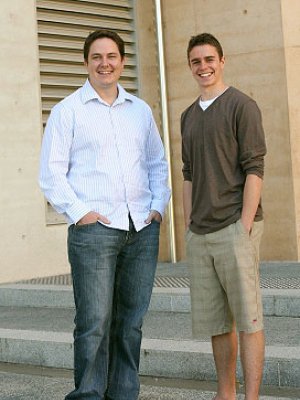
University of Queensland student Matthew Thompson is set to study the psychology behind fingerprint identification after being awarded a prestigious Queensland Government Smart Futures PhD Scholarship.
Worth $22,500, the scholarship is part of the Queensland Government's Innovation Skills Fund.
“Fingerprint identification has been a crucial source of evidence in court for over 100 years,” Mr Thompson said.
“The misidentification of crime-scene fingerprints is potentially devastating – innocent people could be wrongly convicted, and guilty people could be wrongly acquitted – and serious cases of misidentification have occurred.”
Mr Thompson said contrary to popular belief and TV shows like CSI, fingerprint experts don’t rely on computers to match prints found at a crime scene. It’s humans that make the final decision about whether a fingerprint belongs to a suspect or not.
“My research will improve our understanding of how people process forensic evidence, advance forensic training, and provide tools and techniques to aid the Queensland Police Service in forensic identification,” he said.
In collaboration with the Queensland Police Service Mr Thompson will be developing computer tools, training methods and “rules of thumb” to help fingerprint experts optimise their decision making.
“We want to understand how these professionals classify and identify forensic evidence, what methodology underlies their approach, and what mental workload is involved,” he said.
“We will help to develop a research-based training program that will place Australia at the forefront of research on forensic identification worldwide.”
Principal advisor Dr Jason Tangen said every piece of forensic evidence that’s presented in court involves human judgement.
“But in the past there hasn’t been much of a relationship between the police and the psychologists who study in this area,” Dr Tangen said.
“As experimental psychologists, decision making is our bread and butter. We hope to apply the lessons we've learned from decision making in other fields such as medicine, economics, and business to understand how forensic professionals make decisions.”
Mr Thompson has also received a research award from National ICT Australia (NICTA), Australia's Information and Communications Technology Centre of Excellence. NICTA provides $8,000 per year for PhD students who show potential to be future leaders of ICT research and development in Australia.
For more information on the fingerprinting project, visit www.itee.uq.edu.au/~thompson
Media: Melinda Kopanakis (07 3365 8820, m.kopanakis@uq.edu.au) or Cameron Pegg at UQ Communications (07 3365 2049, c.pegg@uq.edu.au)
.jpg)


